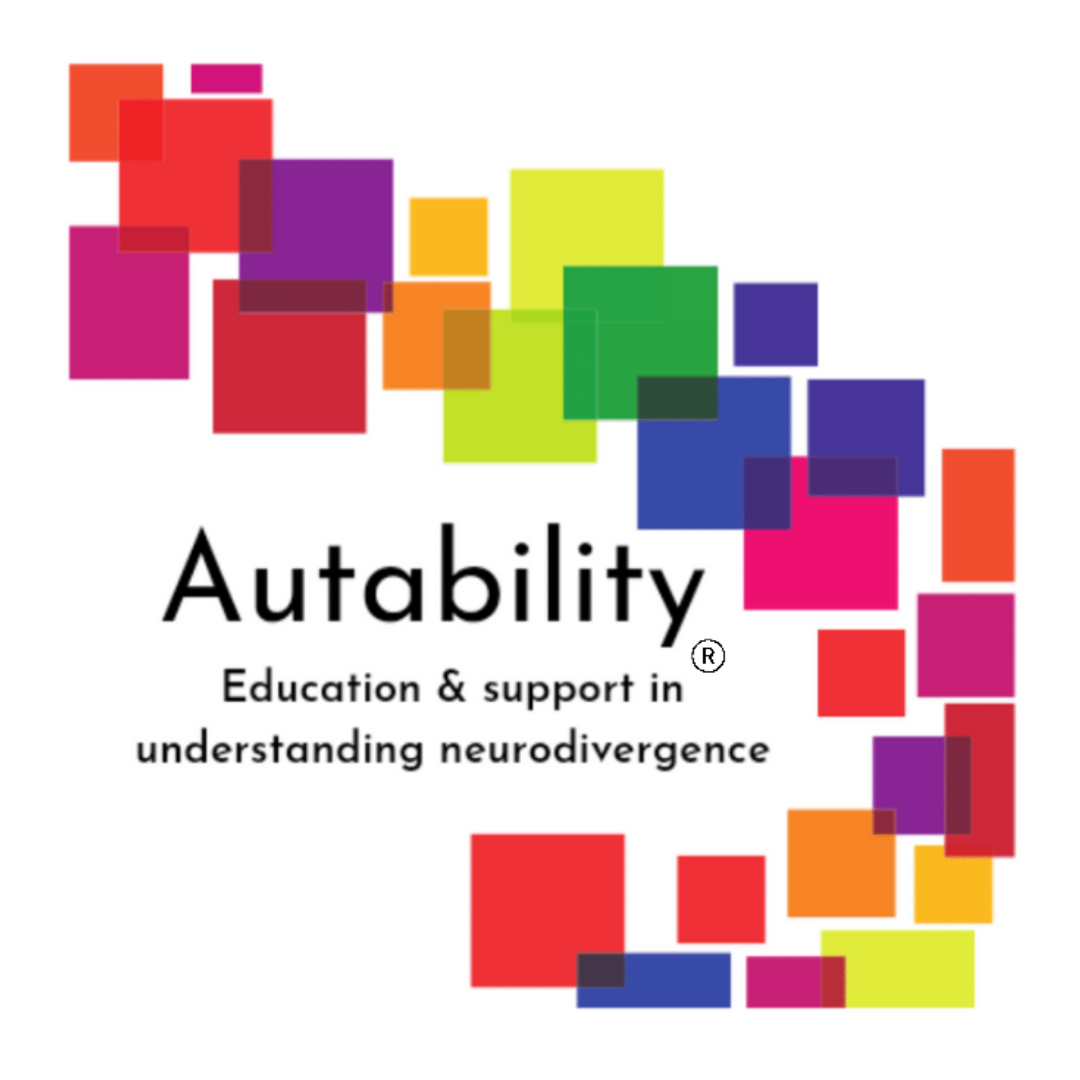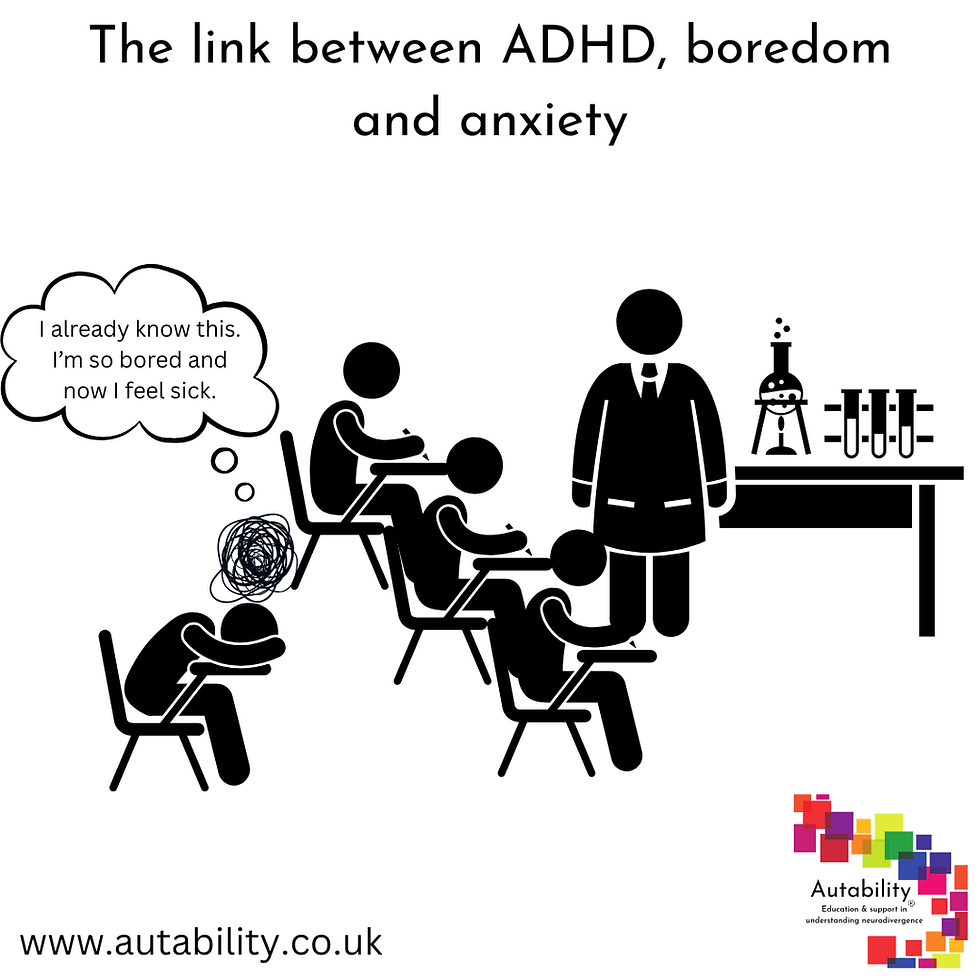ADHD, Boredom & Challenging Behaviour
- Autability

- Oct 18, 2025
- 2 min read
Many parents and teachers assume that children with ADHD struggle most when academic demands are too high. But there's a paradox that often catches families off guard: ADHD symptoms can get worse when a child isn't being challenged enough.
Children with ADHD have neurological differences that affect their executive function, attention regulation, and impulse control. One aspect that's often misunderstood is that ADHD brains crave stimulation and novelty. When the environment doesn't provide enough interest or engagement, the brain seeks it elsewhere—often in ways that look disruptive or inattentive.
A bright child with ADHD, who already knows the material being taught in class, faces a perfect storm. The work is too easy to hold their interest, but their brain's regulatory systems aren't strong enough to focus through the boredom. The result? Increased fidgeting, daydreaming, disrupting others, or simply staring into space.
There are several signs that an ADHD child might be under stimulated and underchallenged. They might finish work quickly, making errors on work that they are already able to do. They may seek attention by misbehaving to seek stimulation another way. They may appear more impulsive, distracted, or hyperactive during easy unchallenging lessons, or they may “zone out” and appear to have more severe inattention than they show during more stimulating and engaging work.
When under stimulated, the ADHD brain doesn't get the dopamine activation needed to stay focussed. Interestingly, many children with ADHD can hyperfocus on genuinely difficult or interesting material while struggling to complete simple worksheets. It is important to remember that this is not laziness or defiance. It is neurobiology, as the ADHD brain needs a certain level of challenge or novelty to activate the attention pathway properly.
The goal isn't to pile on more work but to find work that genuinely engages their mind. When children with ADHD are appropriately challenged, many families are surprised to see improvements in attention, behaviour, and emotional regulation. The ADHD doesn't disappear, but the symptoms often become more manageable.

.png)



Comments